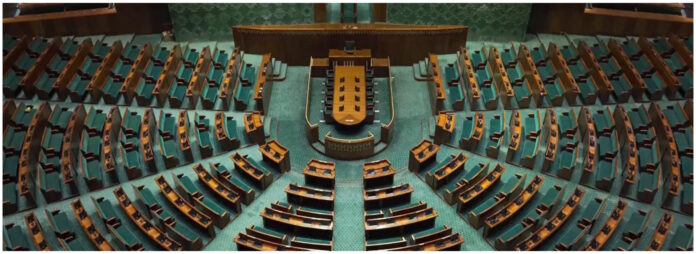In a tumultuous turn of events during March 1989, the Lok Sabha, the lower house of India’s Parliament, witnessed an unprecedented occurrence as 63 Members of Parliament (MPs) faced suspension amid controversies surrounding the Thakkar Panel report. This incident marked a significant and memorable chapter in the history of India’s parliamentary proceedings.
Background of the Thakkar Panel Controversy:
The Thakkar Panel report, commissioned to investigate certain matters, had become a focal point of heated debates and discussions within the Lok Sabha. The findings and recommendations of the report had stirred controversy and created a charged atmosphere within the parliamentary chambers.
Unprecedented Suspension of 63 MPs:
In an extraordinary move, the Lok Sabha took decisive action by suspending a staggering 63 MPs in a single day. The mass suspension was a reflection of the intensity and gravity of the issues surrounding the Thakkar Panel report, indicating the Parliament’s commitment to maintaining decorum and addressing contentious matters.
Significance of the Suspension:
The suspension of such a large number of MPs was not only unprecedented but also sent shockwaves through the political landscape. It served as a stern reminder of the accountability expected from elected representatives and the Parliament’s commitment to upholding ethical and transparent governance.
Public and Political Reaction:
The suspension drew attention from the public, media, and political circles alike, sparking discussions on the implications of such a bold move. The incident became a topic of national discourse, with various stakeholders expressing diverse opinions on the appropriateness of the parliamentary action.
Aftermath and Subsequent Developments:
The suspension of 63 MPs had a lasting impact on parliamentary proceedings and prompted a reevaluation of protocols and norms within the Lok Sabha. Subsequent discussions and deliberations unfolded as the Parliament sought to address the fallout from the Thakkar Panel controversy and the unprecedented disciplinary action taken.
Conclusion:
The suspension of 63 MPs in the Lok Sabha amid the Thakkar Panel controversy stands as a pivotal moment in Indian parliamentary history. It underscores the dynamic nature of democratic processes, the accountability expected from elected representatives, and the Parliament’s commitment to addressing contentious issues with firm resolve. The incident serves as a reminder of the complexities and challenges inherent in the functioning of a vibrant and diverse democracy like India.






















